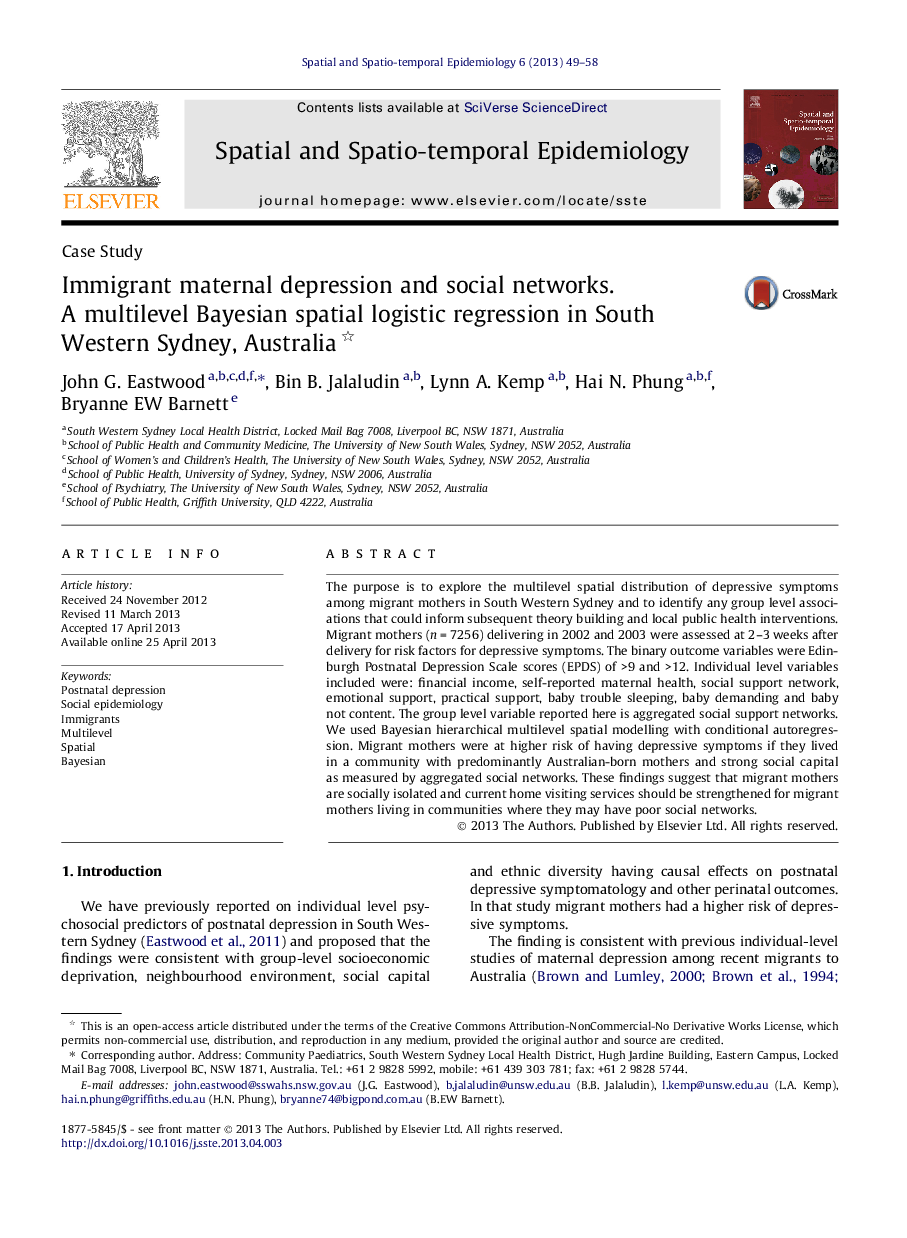| Article ID | Journal | Published Year | Pages | File Type |
|---|---|---|---|---|
| 7496218 | Spatial and Spatio-temporal Epidemiology | 2013 | 10 Pages |
Abstract
The purpose is to explore the multilevel spatial distribution of depressive symptoms among migrant mothers in South Western Sydney and to identify any group level associations that could inform subsequent theory building and local public health interventions. Migrant mothers (n = 7256) delivering in 2002 and 2003 were assessed at 2-3 weeks after delivery for risk factors for depressive symptoms. The binary outcome variables were Edinburgh Postnatal Depression Scale scores (EPDS) of >9 and >12. Individual level variables included were: financial income, self-reported maternal health, social support network, emotional support, practical support, baby trouble sleeping, baby demanding and baby not content. The group level variable reported here is aggregated social support networks. We used Bayesian hierarchical multilevel spatial modelling with conditional autoregression. Migrant mothers were at higher risk of having depressive symptoms if they lived in a community with predominantly Australian-born mothers and strong social capital as measured by aggregated social networks. These findings suggest that migrant mothers are socially isolated and current home visiting services should be strengthened for migrant mothers living in communities where they may have poor social networks.
Related Topics
Health Sciences
Medicine and Dentistry
Public Health and Health Policy
Authors
John G. Eastwood, Bin B. Jalaludin, Lynn A. Kemp, Hai N. Phung, Bryanne EW Barnett,
